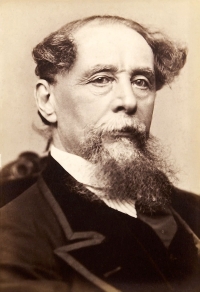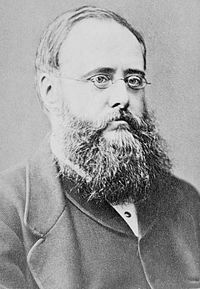The Seven Poor Travellers. The Extra Christmas Number of Household Words, Christmas, 1854.
Book Details
| Title: | The Seven Poor Travellers. The Extra Christmas Number of Household Words, Christmas, 1854. | ||||||||||
| Author: |
| ||||||||||
| Author: | |||||||||||
| Author: |
| ||||||||||
| Author: |
| ||||||||||
| Author: |
| ||||||||||
| Published: | 1854 | ||||||||||
| Publisher: | Chapman and Hall | ||||||||||
| Tags: | Christmas, fiction, short story | ||||||||||
| Description: | The version of this story normally published is the parts written by Charles Dickens himself. This version is the original. The story starts in a charity hospice in Rochester—a place that Dickens himself was familiar with from his own childhood. According to the will of the founder, Richard Watts, at Christmas the hospice must provide lodgings and entertainment for one night as well as some money to six poor people, an amount that is substantial enough to allow the travelers to buy a hearty meal. On Christmas Eve there are six people in the inn and the novels is composed from the six stories of the travelers who find shelter in the hospice, plus the narrator himself. The stories told by the travelers and the meal shared create a kind of harmony and a sense of community between the seven people—they all leave the inn the following day and life will probably take them to different places, but they will all cherish the memory of this one serene evening. [Suggest a different description.] |
||||||||||
| Downloads: | 310 | ||||||||||
| Pages: | 86  |
Author Bio for Dickens, Charles

Charles John Huffam Dickens was an English writer and social critic. He created some of the world's best-known fictional characters and is regarded as the greatest novelist of the Victorian era. His works enjoyed unprecedented popularity during his lifetime, and by the twentieth century critics and scholars had recognised him as a literary genius. His novels and short stories enjoy lasting popularity.
Born in Portsmouth, Dickens left school to work in a factory when his father was incarcerated in a debtors' prison. Despite his lack of formal education, he edited a weekly journal for 20 years, wrote 15 novels, five novellas, hundreds of short stories and non-fiction articles, lectured and performed extensively, was an indefatigable letter writer, and campaigned vigorously for children's rights, education, and other social reforms.
Dickens's literary success began with the 1836 serial publication of The Pickwick Papers. Within a few years he had become an international literary celebrity, famous for his humour, satire, and keen observation of character and society. His novels, most published in monthly or weekly instalments, pioneered the serial publication of narrative fiction, which became the dominant Victorian mode for novel publication. The instalment format allowed Dickens to evaluate his audience's reaction, and he often modified his plot and character development based on such feedback. For example, when his wife's chiropodist expressed distress at the way Miss Mowcher in David Copperfield seemed to reflect her disabilities, Dickens improved the character with positive features. His plots were carefully constructed, and he often wove elements from topical events into his narratives. Masses of the illiterate poor chipped in ha'pennies to have each new monthly episode read to them, opening up and inspiring a new class of readers.
Dickens was regarded as the literary colossus of his age. His 1843 novella, A Christmas Carol, remains popular and continues to inspire adaptations in every artistic genre. Oliver Twist and Great Expectations are also frequently adapted, and, like many of his novels, evoke images of early Victorian London. His 1859 novel, A Tale of Two Cities, set in London and Paris, is his best-known work of historical fiction. Dickens's creative genius has been praised by fellow writers—from Leo Tolstoy to George Orwell and G. K. Chesterton—for its realism, comedy, prose style, unique characterisations, and social criticism. On the other hand Oscar Wilde, Henry James, and Virginia Woolf complained of a lack of psychological depth, loose writing, and a vein of saccharine sentimentalism. The term Dickensian is used to describe something that is reminiscent of Dickens and his writings, such as poor social conditions or comically repulsive characters.--Wikipedia.
Author Bio for Collins, Wilkie

William Wilkie Collins (8 January 1824 – 23 September 1889) was an English novelist and playwright known for The Woman in White (1859) and The Moonstone (1868). The last has been called the first modern English detective novel. Born to a London painter, William Collins, and his wife, the family moved to Italy when Collins was twelve, living there and in France for two years, so that he learned Italian and French. On publishing his first novel, Antonina, in 1850, Collins met Charles Dickens, who became a friend and mentor. Some Collins works appeared first in Dickens's journals Household Words and All the Year Round. The two also collaborated on drama and fiction. Collins reached financial stability and an international following in the 1860s from his best-known works, but began to suffer from gout. He took opium for the pain, but became addicted to it. His health and his writing quality declined in the 1870s and 1880s. Collins was critical of the institution of marriage: he later split his time between widow Caroline Graves, with whom he had lived most of his adult life, treating her daughter as his, and the younger Martha Rudd, by whom he had three children.--Wikipedia.
Available Formats
| FILE TYPE | LINK | ||
| UTF-8 text | 20181107.txt | ||
| HTML | 20181107.html | ||
| Epub | 20181107.epub | If you cannot open a .mobi file on your mobile device, please use .epub with an appropriate eReader. | |
| Mobi/Kindle | 20181107.mobi | ![1. Download the .mobi file into your computer’s Downloads Folder.
2. Rename the file from [8-digit number].mobi to [my title].mobi.
3. Connect your Kindle to your computer using the Kindle USB cable.
4. Open the “documents” folder in the Kindle directory and Copy/Paste
the renamed .mobi file into the “documents” folder.
5. Eject your Kindle. The file will then appear in the Kindle Main Menu
as a New item with the new renamed file name. Info](/images/info.jpg) | Not all Kindles or Kindle apps open all .mobi files. |
| PDF (tablet) | 20181107-a5.pdf | ||
| HTML Zip | 20181107-h.zip |
Kindle Direct (New, Experimental)
Send this book direct to your kindle via email. We need your Send-to-Kindle Email address, which can be found by looking in your Kindle device’s Settings page. All kindle email addresses will end in @kindle.com. Note you must add our email server’s address, [email protected], to your Amazon account’s Approved E-mail list. This list may be found on your Amazon account: Your Account→ Manage Your Content and Devices→ Preferences→ Personal Document Settings→ Approved Personal Document E-mail List→ Add a new approved e-mail address.
This book is in the public domain in Canada, and is made available to you DRM-free. You may do whatever you like with this book, but mostly we hope you will read it.
Here at FadedPage and our companion site Distributed Proofreaders Canada, we pride ourselves on producing the best ebooks you can find. Please tell us about any errors you have found in this book, or in the information on this page about this book.
